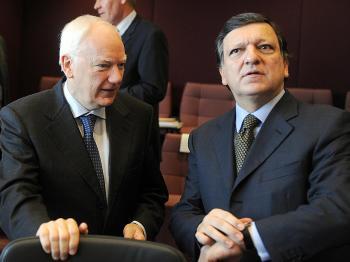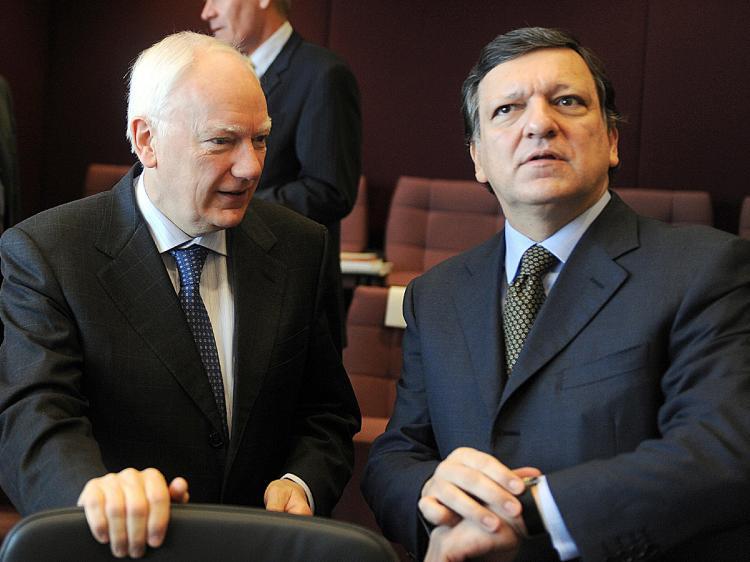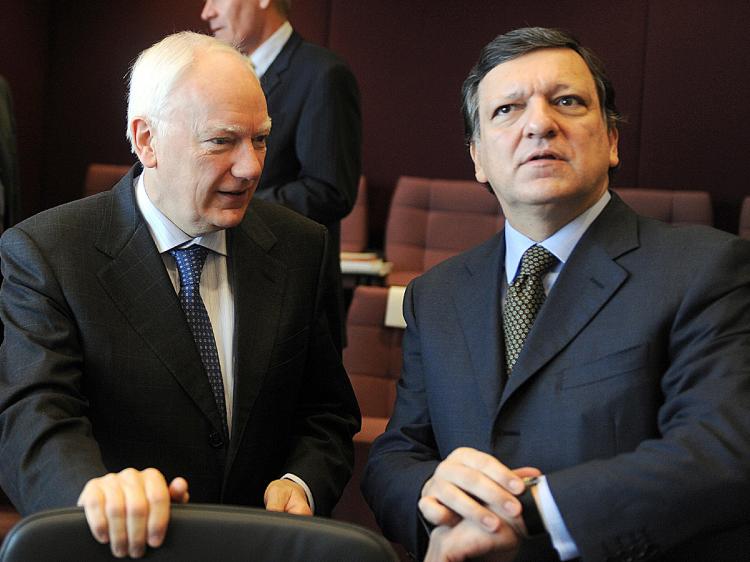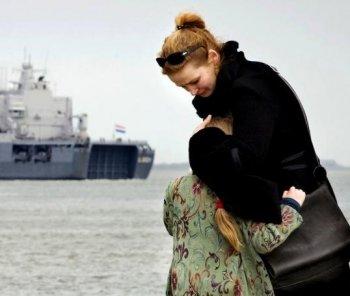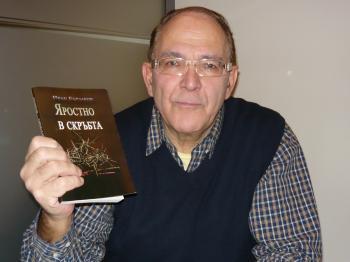The European Council (EC) will meet March 19–20. The meeting will focus mainly on the financial crisis, energy security, and climate change, as announced by the Press Service of the European Parliament (EP).
These themes were a focus of debate in the EP on March 12 with the participation of Czech Deputy Prime Minister Alexandr Vondra and European Commission (executive branch of the EU) President José Barroso. The majority of Members of Parliament (MPs) expressed the view that solidarity between Member States is crucial to overcome the crisis and protectionism must be avoided. Parliament then adopted resolutions on the Lisbon strategy and employment.
Czech Deputy Prime Minister and Minister for European Affairs Alexandr Vondra opened the debate, reminding that the forthcoming European Council will be held in a critical time for the Union, owing to the unprecedented situation for the European economies and financial systems stemming from the current world economic crisis. Vondra pointed out the economic crisis, along with energy and climate change, as the main themes of the forthcoming European Council.
Mr. Vondra first looked at the financial crisis, repeating that Europe avoided the crash of its financial system, and the main priority now is the restoration of credit flow in the economy. In addition, he pointed out the need of improved regulation and supervision of financial institutions.
According to the Czech deputy prime minister, urgent action is needed to initiate infrastructure projects to increase the interconnection of energy infrastructures. He also expressed hope that legislation on the internal markets of gas and electricity will be adopted before the European elections to be held in June this year.
The EU will give go-ahead to the Eastern Partnership, which should contribute to the stability and prosperity of the entire continent. The idea is to adapt a bilateral and separate approach to each partner country, leading to negotiations for association agreements and the creation of free trade zones. The multilateral approach aims to provide a framework that addresses common challenges such as democracy, good governance, economic integration, and energy security.
Massive loss of jobs is a test for the European social model, said President José Manuel Barroso during the debate of the European Commission. He added that the economic crisis should be embraced by all—families, workers, business companies, and individuals, with the support of the EU and Member States working together.
The recovery plan of European ministers in December 2008 provided an “unprecedented government stimulus,” equal to 3.3 percent of GDP, said Mr. Barroso. Already 6.2 billion euros (US$8.08 billion) will be allocated to Structural Funds in 2009, in addition to the 5 billion euros (US$6.51 billion) already designated for restoration plans.
According to the president of the European Commission, the next European Council must make progress in four areas: reform of the financial market, investment in real economy, maintaining employment, and strengthening the global economic architecture through G-20.
The European Council is the top-level meeting of the EU, and including heads of state and the president of the European Commission.
These themes were a focus of debate in the EP on March 12 with the participation of Czech Deputy Prime Minister Alexandr Vondra and European Commission (executive branch of the EU) President José Barroso. The majority of Members of Parliament (MPs) expressed the view that solidarity between Member States is crucial to overcome the crisis and protectionism must be avoided. Parliament then adopted resolutions on the Lisbon strategy and employment.
Czech Deputy Prime Minister and Minister for European Affairs Alexandr Vondra opened the debate, reminding that the forthcoming European Council will be held in a critical time for the Union, owing to the unprecedented situation for the European economies and financial systems stemming from the current world economic crisis. Vondra pointed out the economic crisis, along with energy and climate change, as the main themes of the forthcoming European Council.
Mr. Vondra first looked at the financial crisis, repeating that Europe avoided the crash of its financial system, and the main priority now is the restoration of credit flow in the economy. In addition, he pointed out the need of improved regulation and supervision of financial institutions.
According to the Czech deputy prime minister, urgent action is needed to initiate infrastructure projects to increase the interconnection of energy infrastructures. He also expressed hope that legislation on the internal markets of gas and electricity will be adopted before the European elections to be held in June this year.
The EU will give go-ahead to the Eastern Partnership, which should contribute to the stability and prosperity of the entire continent. The idea is to adapt a bilateral and separate approach to each partner country, leading to negotiations for association agreements and the creation of free trade zones. The multilateral approach aims to provide a framework that addresses common challenges such as democracy, good governance, economic integration, and energy security.
Massive loss of jobs is a test for the European social model, said President José Manuel Barroso during the debate of the European Commission. He added that the economic crisis should be embraced by all—families, workers, business companies, and individuals, with the support of the EU and Member States working together.
The recovery plan of European ministers in December 2008 provided an “unprecedented government stimulus,” equal to 3.3 percent of GDP, said Mr. Barroso. Already 6.2 billion euros (US$8.08 billion) will be allocated to Structural Funds in 2009, in addition to the 5 billion euros (US$6.51 billion) already designated for restoration plans.
According to the president of the European Commission, the next European Council must make progress in four areas: reform of the financial market, investment in real economy, maintaining employment, and strengthening the global economic architecture through G-20.
The European Council is the top-level meeting of the EU, and including heads of state and the president of the European Commission.
